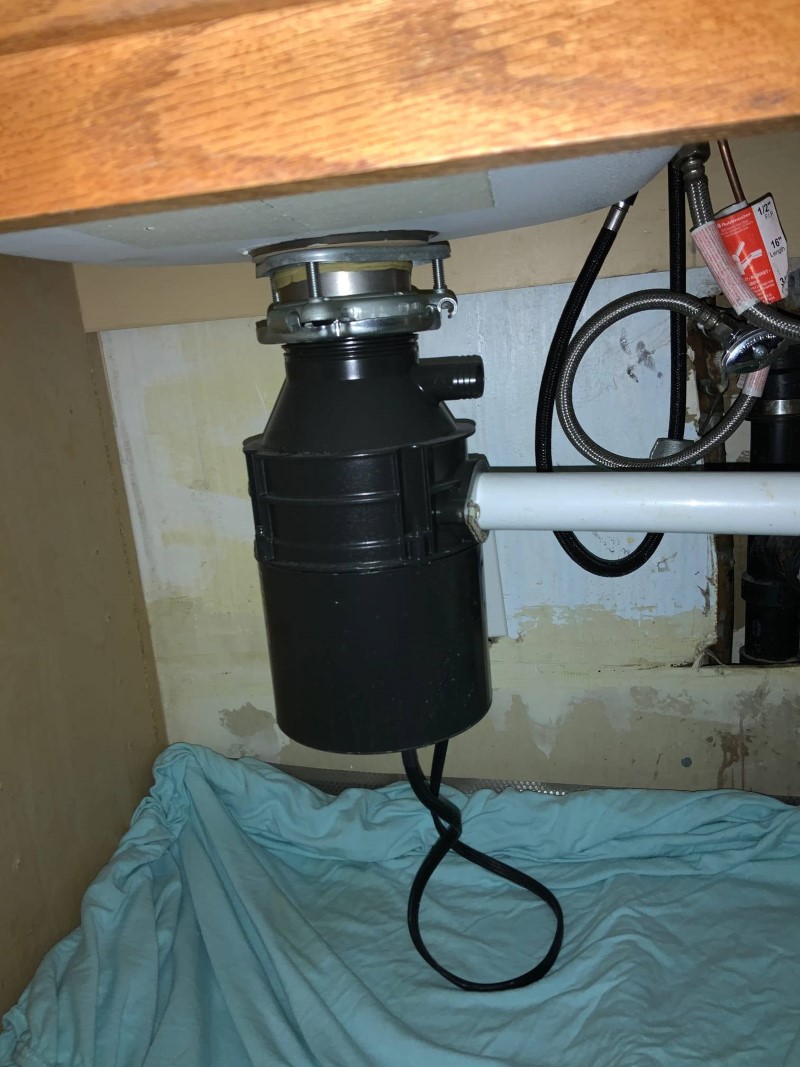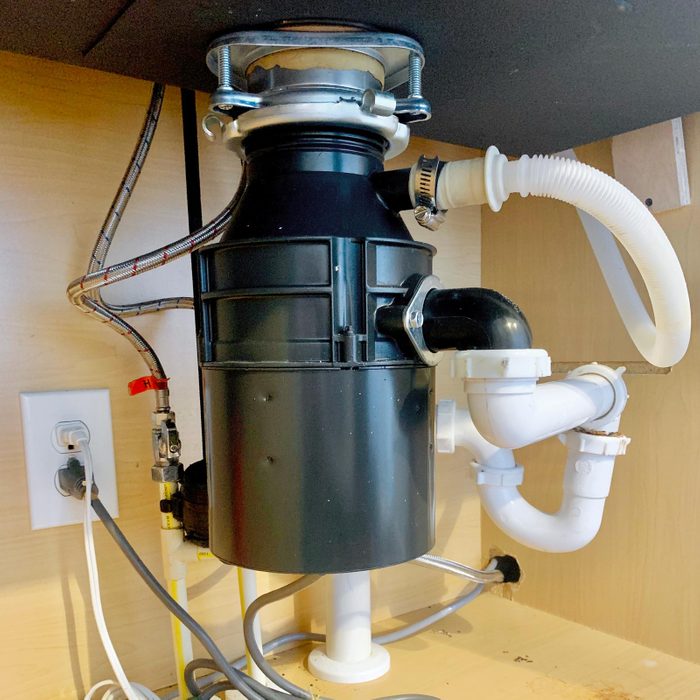Straightforward Instructions for Repairing a Leaky Waste Disposal
Straightforward Instructions for Repairing a Leaky Waste Disposal
Blog Article
Presented here below you can get lots of good quality data in regards to How to fix a pretty consistent leak from my garbage disposal.

Waste disposal unit are crucial cooking area home appliances that help in taking care of food waste efficiently. However, a leaking garbage disposal can be a discouraging and unpleasant problem to deal with. Luckily, many leaks can be repaired easily with a few easy actions. In this write-up, we will certainly discuss how to take care of a leaking garbage disposal properly.
Introduction
Garbage disposals are mounted under kitchen area sinks and are made to shred food waste into smaller items, allowing it to travel through the pipes system quickly. While these tools are typically dependable, leakages can take place with time due to wear and tear, loose links, or damage to the unit.
Usual Root Causes Of Leaks in Waste Disposals
Worn Seals and Gaskets
Seals and gaskets play an important role in stopping water from dripping out of the garbage disposal. With time, these parts can degrade, resulting in leakages around the disposal device.
Loose Connections
The connections in between the garbage disposal and the pipes system can come to be loosened with time, triggering water to leakage out during procedure.
Fractures or Holes in the Disposal Device
Physical damages to the waste disposal unit, such as fractures or openings in the housing, can likewise lead to leaks.
Identifying the Resource of the Leakage
Prior to attempting to repair a dripping waste disposal unit, it is vital to determine the resource of the leak. This can usually be done with visual examination or by carrying out simple tests.
Visual Assessment
Evaluate the waste disposal unit unit meticulously for any signs of water leak. Pay attention to locations around seals, gaskets, and link points.
Checking for Leakages
One means to examine for leaks is by running water through the disposal device and looking for any type of noticeable indicators of leak.
Devices and Products Needed for Repairing a Dripping Garbage Disposal
Prior to beginning the repair service procedure, gather the needed devices and products, consisting of a screwdriver, flexible wrench, plumbing professional's putty, substitute seals or gaskets, and epoxy or patching material for repairing cracks or holes.
Step-by-Step Overview to Taking Care Of a Leaking Garbage Disposal
Switch off the Power
Before trying any fixings, ensure that the power to the garbage disposal system is switched off to avoid the risk of electric shock.
Locate the Leak
Identify the exact area of the leak and determine the reason.
Tighten up Connections
Use a wrench to tighten up any kind of loose connections in between the disposal device and the pipes system.
Change Seals or Gaskets
If the leak results from worn seals or gaskets, eliminate the old components and replace them with brand-new ones.
Patching Cracks or Openings
For splits or holes in the disposal system, use epoxy or an appropriate patching material to seal the broken location.
Checking the Waste Disposal Unit After Repair Work
As soon as the repair service is total, examine the waste disposal unit by running water via it to make sure that the leak has actually been settled.
Preventive Upkeep Tips to Prevent Future Leaks
To prevent future leakages, it is vital to execute normal upkeep on your waste disposal unit. This includes keeping it clean, avoiding placing non-food items or difficult items down the disposal, and occasionally checking for leaks or various other concerns.
Verdict
In conclusion, dealing with a dripping waste disposal unit is a reasonably straightforward process that can be completed with fundamental devices and materials. By adhering to the actions described in this write-up and exercising preventative upkeep, you can maintain your garbage disposal in good working problem and stay clear of expensive repair work in the future.
HERE’S HOW TO FIX YOUR GARBAGE DISPOSAL
WHAT TO DO IF SOMETHING IS STUCK IN YOUR GARBAGE DISPOSAL
If the impeller won’t turn, there’s probably something stuck in the disposal. It could be a steak bone or peach pit, although plumbers report pulling all sorts of inappropriate objects out of disposals, such as bottle caps or aluminum foil. Make sure power to the disposal is off, and look inside to see if you can see the source of the jam.
Never stick your fingers in a disposal. Pull out anything you see with tongs or pliers.
If the disposal still won’t work, it may be time to call a plumber or consider buying a new disposal. GEM Plumbing & Heating is here for all of your garbage disposal needs.
WHAT TO DO IF YOUR GARBAGE DISPOSAL DRAIN IS CLOGGED
Take everything out from underneath your sink and put a bucket or other container under your disposal to catch any water that drains out. Disconnect your disposal from the power supply. If it’s plugged into a wall outlet, unplug it. If it’s hardwired into an electrical box, go to the electrical panel and turn off the breaker for the disposal. Pour ¼ cup of baking soda into the drain, followed by ½ cup of white vinegar. Give the solution a few minutes to fizz and do its work. Look into the disposal with a flashlight to see if you can see an object that might be causing the clog. If you see it, remove it using tongs or pliers. MORE TIPS ON DEALING WITH A CLOGGED GARBAGE DISPOSAL
Never use drain cleaner in a garbage disposal. It can damage the plastic parts inside the disposal. You can also be splashed with the caustic liquid while working to clear the clog. Beware! Never stick your fingers into a garbage disposal. Trust us — not a good idea. In many instances, your dishwasher drains through your garbage disposal. This allows the disposal to grind any large food particles that may be drained out of your dishwasher. There are some jurisdictions, however, where the plumbing code prohibits such a connection. WHAT TO DO WHEN YOUR DISHWASHER DRAINS THROUGH THE DISPOSAL
Run some water in the sink so your plunger has at least a ½-inch of water to create a seal and plunge vigorously up and down several times. You may need to repeat this several times. Run hot water down the drain to clear any residue that remains.

I came across that content on Why Is when perusing the search engines. So long as you liked our article plz make sure you remember to share it. Kudos for your time. Visit again soon.
Request A Quote Report this page